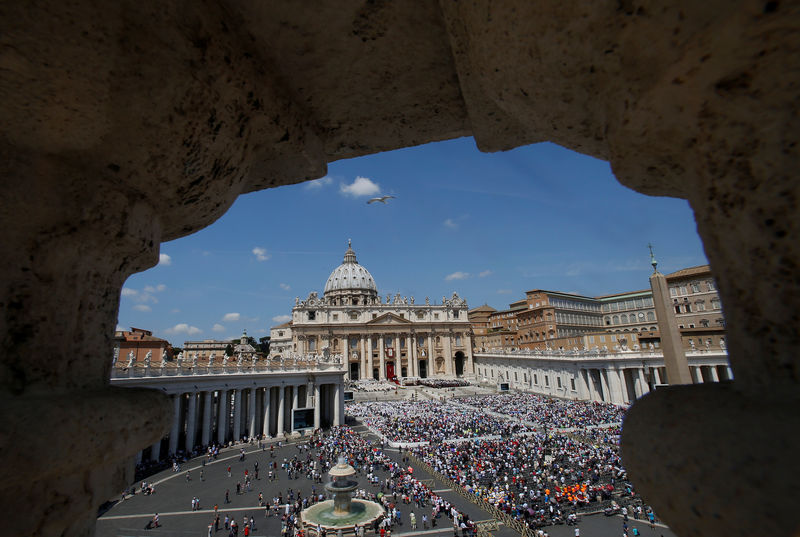By Philip Pullella
VATICAN CITY (Reuters) - The Vatican on Friday scrapped a plan for a major international accounting firm to carry out its first full external audit but insisted the change would not affect its drive for financial transparency.
The Vatican, which is a sovereign state, said in a statement that the work would instead be done by its own Auditor General with assistance from Pricewaterhouse Coopers (PwC).
The Vatican suspended an audit by PwC in April, saying it wanted to review several key clauses.
Friday's statement said a new agreement had been reached with PwC that conformed with Vatican law and was more adaptable to the Vatican's needs.
The original contract, reportedly worth $3 million (2.08 million pound), was negotiated by the Secretariat of the Economy, the department headed by Australian Cardinal George Pell.
The Vatican's Secretariat of State later suspended the contract, saying it did not comply with laws of the city-state that said the work should be done by the Auditor General, a new position created by Pope Francis last year.
Friday's statement said this is "normally the case for every sovereign state."
It said the April suspension was not "attributable to the desire of one or more entities of the Holy See to hinder reforms" and that the Vatican's commitment to an audit "has been, and remains, a priority".
Since the election of Pope Francis in March 2013, the
Vatican has enacted major reforms to bring it into line with
international accounting standards.
But the PwC episode pointed to a power clash between Pell's department, which signed the contract, and the Secretariat of State, which ordered it suspended and re-negotiated.
In April, Pell's office said it was "surprised" by the suspension of the contract.
Pell's defenders say he is forging ahead with transparency
at the Vatican after decades of murky finances, while his critics have accused him of doing so in a bullying manner.
The Vatican's Auditor General, Libero Milone, is a 67-year-old Italian who is a former chairman and CEO of the Italian branch of the global auditing firm Deloitte.
As a result of Francis' clean up campaign, the Vatican bank, which had been embroiled in numerous scandals in the past, has enacted a wide-ranging drive to tighten financial governance and eliminate abuse.
The bank, formally known as the Institute for Religious Works (IOR), has toughened regulatory standards and closed thousands of accounts that were either inactive or deemed not to meet new standards required of clients.

Reforming the IOR and other Vatican departments that deal with Church finances has been one of the most sensitive issues facing the pope as he seeks to overhaul the complex Vatican administration called the Curia.